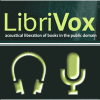 The “Library of the World’s Best Literature, Ancient and Modern”, is a work of enormous proportions. Setting out with the simple goal of offering “American households a mass of good reading”, the editors drew from literature of all times and all kinds what they considered the best pieces of human writing, and compiled an ambitious collection of 45 volumes (with a 46th being an index-guide). Besides the selection and translation of a huge number of poems, letters, short stories and sections of books, the collection offers, before each chapter, a short essay about the author or subject in question. In many cases, chapters contemplate not one author, but certain groups of works, organized by nationality, subject or period; there is, thus, a chapter on Accadian-Babylonian literature, one on the Holy Grail, and one on Chansons, for example.
The “Library of the World’s Best Literature, Ancient and Modern”, is a work of enormous proportions. Setting out with the simple goal of offering “American households a mass of good reading”, the editors drew from literature of all times and all kinds what they considered the best pieces of human writing, and compiled an ambitious collection of 45 volumes (with a 46th being an index-guide). Besides the selection and translation of a huge number of poems, letters, short stories and sections of books, the collection offers, before each chapter, a short essay about the author or subject in question. In many cases, chapters contemplate not one author, but certain groups of works, organized by nationality, subject or period; there is, thus, a chapter on Accadian-Babylonian literature, one on the Holy Grail, and one on Chansons, for example.
The result is a collection that holds the interest, for the variety of subjects and forms, but also as a means of first contact with such famous and important authors that many people have heard of, but never read, such as Abelard, Dante or Lord Byron. According to the editor Charles Dudley Warner, this collection “is not a library of reference only, but a library to be read.”
This second volume contains chapters from “Anacreon” to “Auerbach”. (Summary by Leni)
My contribution to this collaborative effort is “05 – The Ugly Duckling by Hans Christian Andersen”.
http://www.archive.org/download/worlds_best_literature2_librivox/worldsbestliterature2_05_various_64kb.mp3″Running time=25m 11s (mp3@64kb)
